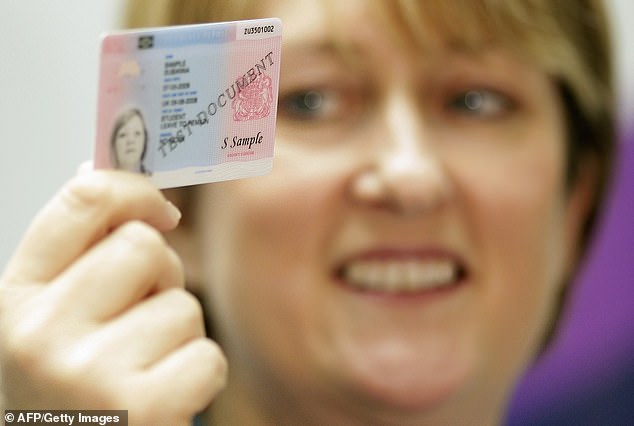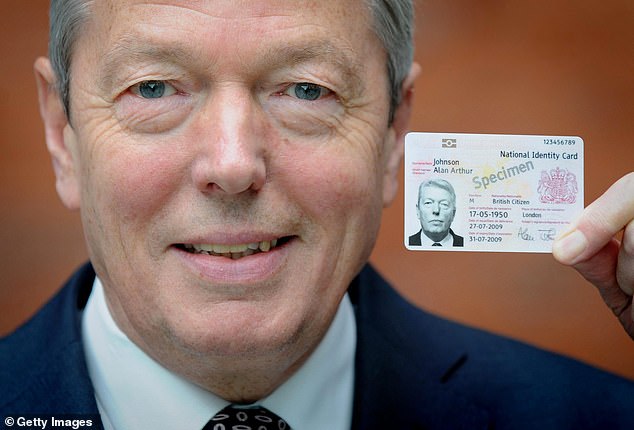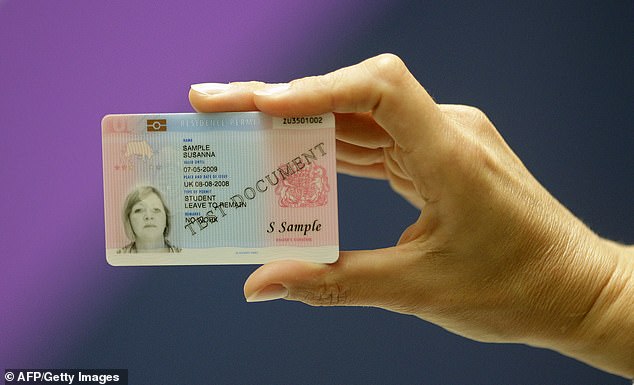A proposal for a government-issued digital identity card for all adults in Britain is generating significant debate, with the Prime Minister expected to announce details soon. Dubbed the ‘BritCard,’ the initiative aims to streamline identity verification for various purposes, including proving the right to work and accessing public services.
How the Proposed Digital ID Card Might Work
The envisioned system is likely to utilise a smartphone application rather than a traditional physical card. A previous, ultimately unsuccessful, UK scheme relied on digital facial recognition technology, measuring distances between facial features for identity confirmation. This new scheme could potentially incorporate additional biometric data, such as fingerprints.
- Central Database: Information on the digital ID would be cross-referenced against a central database containing records for a large portion of the British population.
- Smartphone Integration: Leveraging the widespread use of smartphones, the system could utilize facial ID features already common in banking apps and other applications.
- Detailed Proposals Pending: It is important to note that the government is still in the early stages of developing detailed proposals.
A History of ID Card Initiatives in the UK
The idea of national ID cards is not new to the UK. The Labour government under Tony Blair passed legislation in 2006 for a national ID card scheme.

Detailed plans were later published under Home Secretary Jacqui Smith, although the compulsory nature of the cards was abandoned by that point. The scheme was launched in 2009, under Alan Johnson, featuring credit card-style cards with microchips.

The Passport Service issued these cards to volunteers for £30 each, starting in October 2009. However, following the 2010 general election, then-Home Secretary Theresa May scrapped the entire project, after an expenditure of £257 million.
Security and Potential for Forgery
A key concern is the security of the proposed digital ID card and its resistance to forgery.
- Enhanced Security: A digital ID card, theoretically, offers greater security compared to traditional documents. Live cross-referencing with a central database of names and photos would make fraudulent use significantly more difficult, requiring the user to match the photo on record.
- Vulnerability to Hoaxes: However, less stringent verification methods could be susceptible to fraudulent activities. The effectiveness of the system hinges on the robustness of the security measures implemented.
- Assessment Premature: It is too early to definitively assess the potential success of the current proposals.
Enforcement and Penalties for Non-Compliance
The previous attempt at introducing a compulsory ID card scheme did not include fines for failing to register, primarily because it never reached the compulsory stage. However, the legislation did include penalties for failing to update information, such as a change of address or name, with fines reaching up to £1,000. Similar penalties were in place for failing to surrender a card. It remains unclear how the new scheme will address non-compliance.
Objectives of the Digital ID Card
The primary objective of the digital ID card is to verify an individual's identity and their right to be in the UK.
- Combating Illegal Working: A key aim is to crack down on illegal employment, thereby reducing the attractiveness of the UK to illegal immigrants and those who overstay their visas.
- Right to Rent and Other Applications: The card could also be used to verify the right to rent property and in other situations requiring proof of legal status.
- Controversial Applications: The most controversial potential application lies in accessing healthcare and social security benefits.

The concept of using ID cards to access the NHS or welfare benefits was initially proposed in 2001. However, it faced opposition, particularly from healthcare professionals who argued that life-saving treatment should not be denied based on nationality. The NHS continues to struggle with recovering costs from foreign nationals who engage in 'health tourism'.
Accessibility for Individuals Without Smartphones
A significant challenge is ensuring accessibility for individuals who do not own smartphones, including many elderly citizens. Penalising this group would be discriminatory. Alternative access methods, such as laptop or desktop computer access, may be necessary.
Potential Costs to Taxpayers
The implementation of a digital ID card system is expected to cost billions of pounds. Developing the IT infrastructure from scratch will be a major expense. Depending on the card's specifications, a network of centres for biometric data collection may also be required.
Potential Challenges and Concerns
The project faces numerous potential problems.
- Financial Risks: Failure of the system, as with past attempts, would represent a significant waste of public funds.
- Technological Complexity: The technology involved is likely to be unprecedented for the British government.
- Civil Service Track Record: The civil service's history of managing large IT projects is concerning, with numerous projects experiencing delays and budget overruns.

- Civil Liberties Concerns: The introduction of a national ID card scheme raises serious civil liberties issues. Critics argue it could lead to a "papers please" culture, representing an invasion of privacy.
- Data Security Risks: The government's history of data leaks and hacks raises concerns about the security of a database containing sensitive personal information. A data breach could have catastrophic consequences.
International Examples of Digital ID Cards
Many countries, including Estonia, Spain, Portugal, Germany, India, the UAE, and France, already utilize digital IDs. France has argued that the absence of ID cards in the UK contributes to illegal immigration, as it facilitates employment in the informal economy.


No comments:
Post a Comment